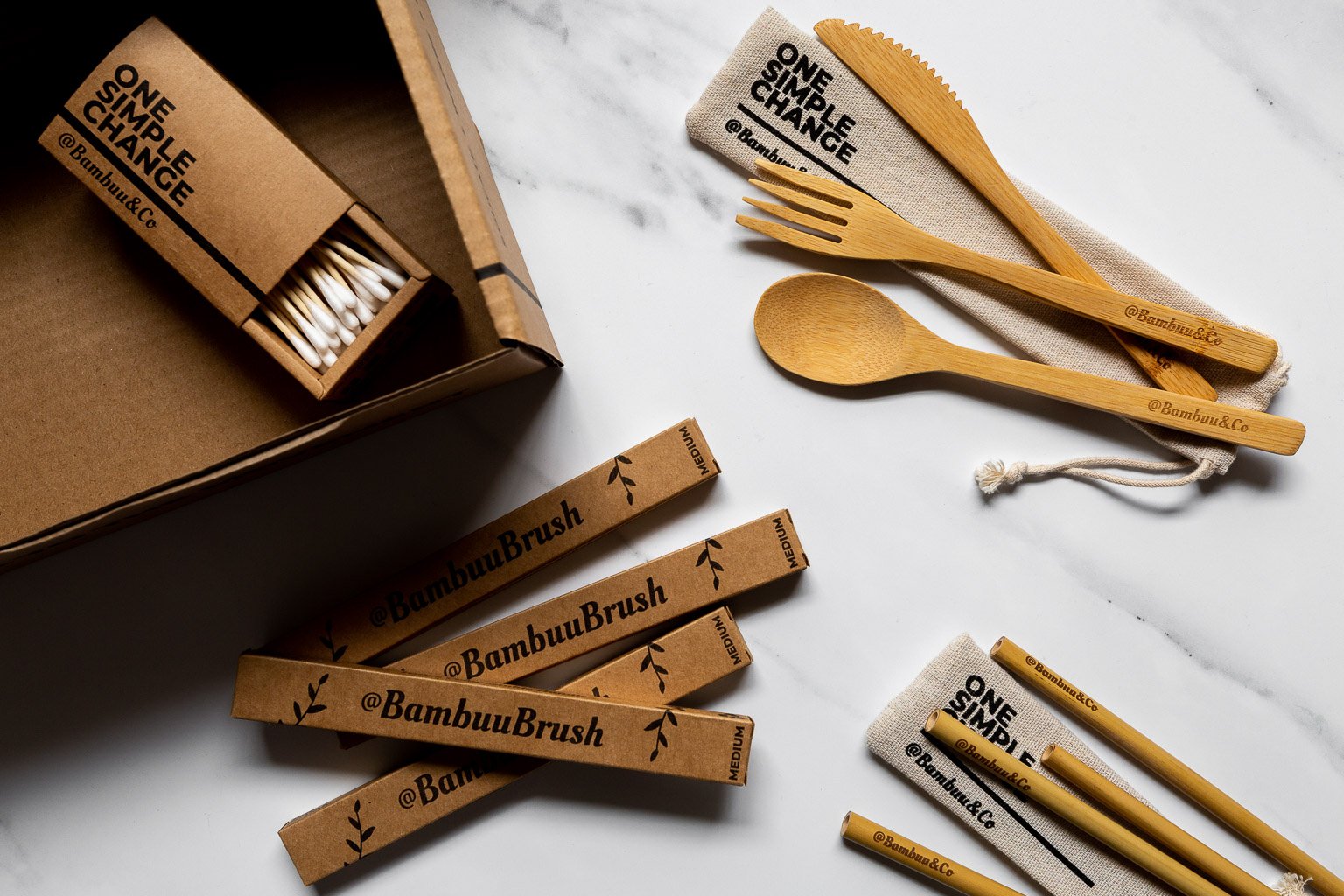Subtotal: £18.00
Easy Sustainable Swaps for the Eco-Conscious Consumer
At the end of London’s NYE fireworks show, national treasure Sir David Attenborough reminded us that “with a new year comes the opportunity for change, and if we act in 2021, we can make a world of difference. Together, we can turn things around. Together, we can restore our fragile home, and make it a happy new year for all the inhabitants of planet earth.”
If you, like Good Hemp, want to contribute to this cause, our round-up of sustainable products will help reduce your carbon footprint and plastic consumption, paving the way for a more eco-conscious 2021.
AMAZING! This 2021 #NewYearsEve fireworks and drone show from London is 🔥🔥🔥 pic.twitter.com/EuFt4n5Ngb
— Austin Kellerman (@AustinKellerman) January 1, 2021
Tackling the Main Plastic Polluters with Sustainable Products
Who better to talk about tackling plastic pollution than our friends and founders of @BambuuBrush, Rebecca and Tommie. They’ve created a purpose-driven company that aims to educate, inspire and empower through purposeful products – including easy sustainable swaps for the top 10 ocean polluters, including straws, bags, cups and cutlery.
Food Wrappers > A Lunch Box
Food packaging makes up over 30% of all plastic waste produced and is one of the ocean’s top polluters. You only have to visit one of the big chain supermarkets to witness a whole heap of unnecessary single-use plastic – with some products packaged in a plastic punnet and then wrapped up again in, you’ve guessed it, more plastic. Luckily, there’s a simple solution. Forgo the cling film and squeeze your home-made sarnies into a lunch box instead (preferably this snazzy stainless steel one from @Bambuu&Co) – it’s stylish, sustainable and there’s no single-use plastic in sight.
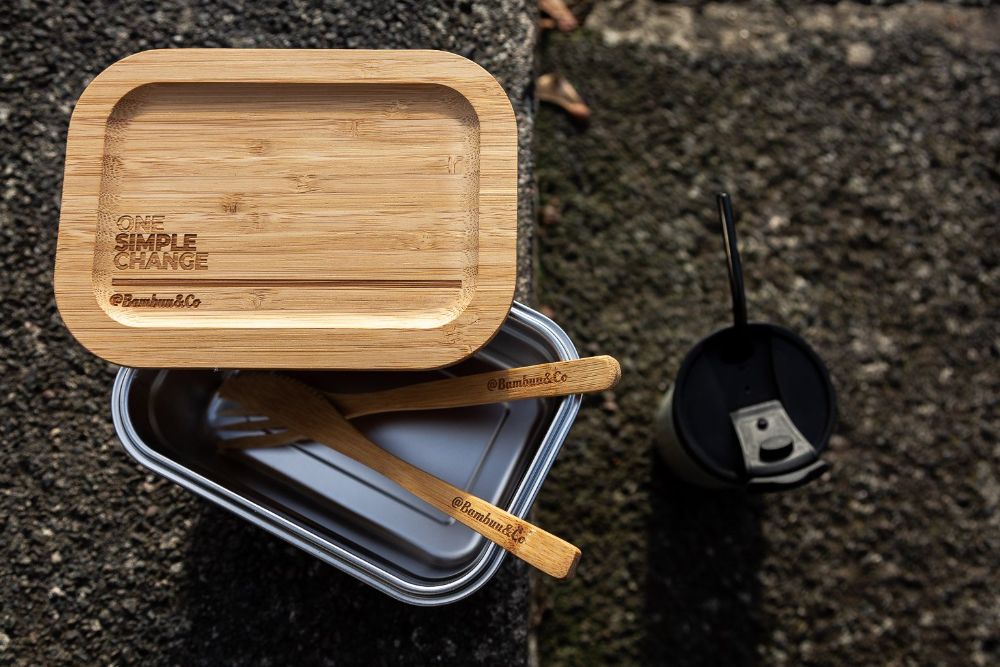
Plastic Cups and Lids > Keep Cups
Can’t start your morning without that all-important caffeine hit? Push aside the plastic cups for a more eco-friendly option. Today, you can get your hands on hundreds of reusable flasks and ‘keep cups’ that are easy to pop in and out of your handbag. Not only do they help save the planet, but they come in a variety of colours and designs too (you can even personalise your own!). Better still, many coffee shops are now recommitting to reusable cups, with discounts available on any hot drink when you bring your own. It’s a win, win.
Plastic Bottles > Reusable Water Bottles
Similarly to sustainable coffee cups, it’s about time we started swapping plastic water bottles for reusable ones. And the more you think about it, the more it makes total sense. Did you know that one million plastic bottles get sold every minute around the world? And not only will it cost you every time you’re feeling parched, it’s terrible for the planet. @Bambuu offers a stylish hydration bundle including a sustainable, insulated coffee mug and water bottle, plus reusable straws to match!
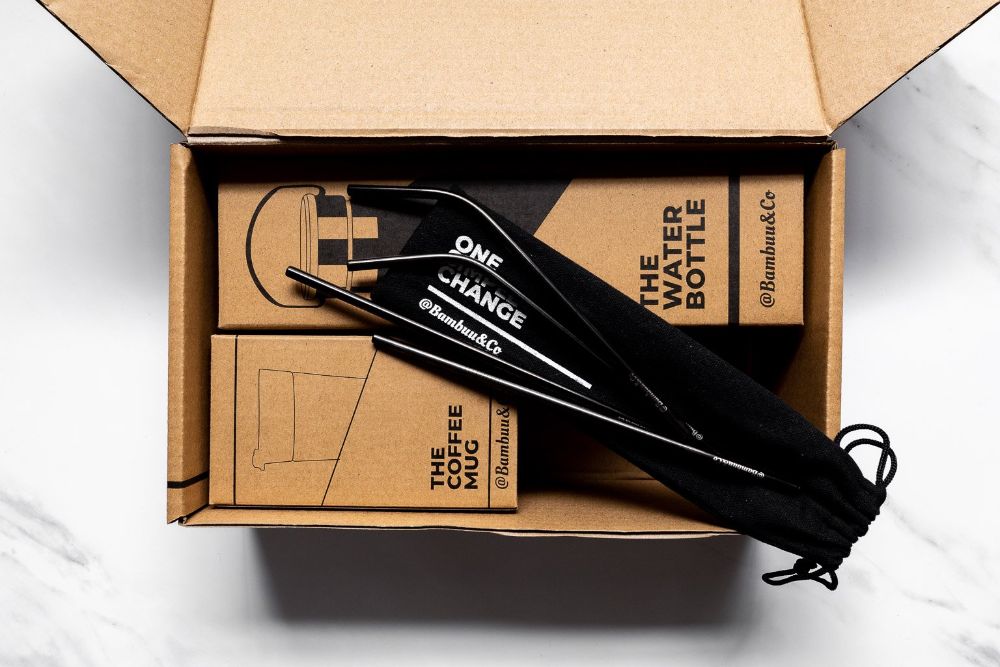
Plastic Bags > Cotton Tote Bags
Everybody’s seen a plastic bag flying through the air before, right? They’re one of the main culprits of deadly marine and landfill pollution, affecting over 267 different species in the ocean – including birds that often mistake shredded bags for food, and sea turtles that are unable to differentiate floating bags from jellyfish. These days, you can get your hands on reusable or cotton tote bags everywhere – and let’s face it, not only do they come in a wide-variety of styles and colours, they’re 10x sturdier than your average plastic bag.
It really is a no brainer.
Plastic Straws > Bamboo Or Stainless Steel Straws
In response to national outcry demanding action against a product that’s significantly harming the world’s oceans, large hospitality chains including Starbucks and McDonald’s announced that they would phase out plastic straws entirely by 2020. While the straw accounts for just 0.025% of the eight million tons of plastic that flows into the ocean each year, it’s a major focus within environmental campaigns due to one simple fact – most able-bodied people can very easily do without it. Like @Bambuu, many companies are now selling bamboo or stainless steel straws, easy to throw in your bag, wash and reuse at your convenience.
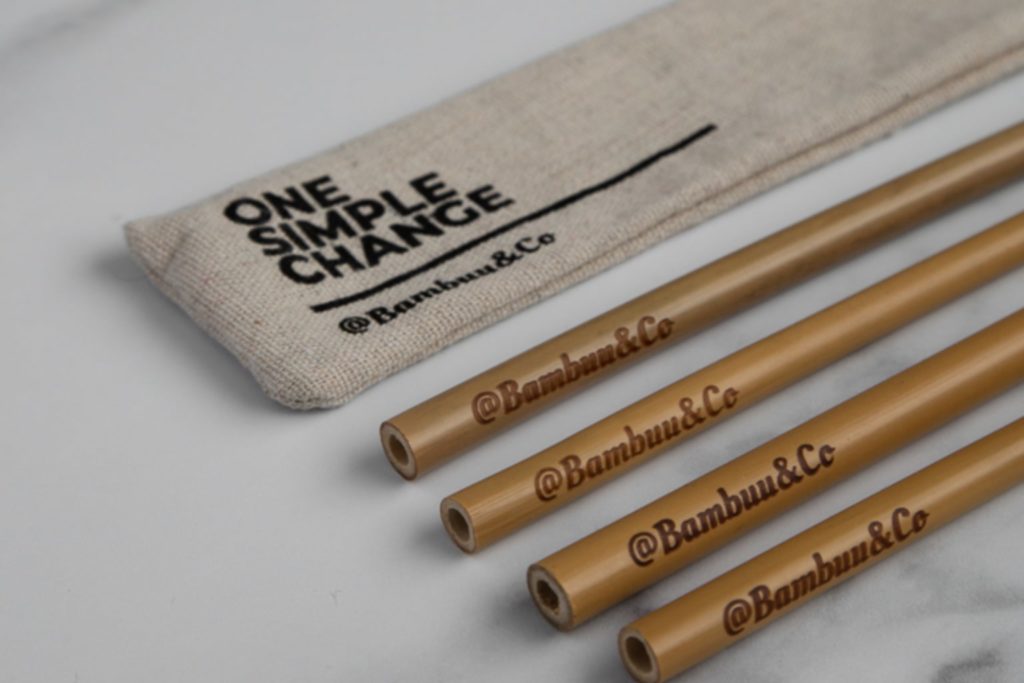
Plastic Cutlery > Bamboo Cutlery
Need to grab a bite to eat while on the go but don’t want to use cheap disposable plastic cutlery? The moso/mao bamboo cutlery set from @Bambuu includes a knife, fork and spoon neatly packaged in a canvas bag – the perfect portable utensils for when hunger strikes. Problem solved!
Saving the Planet with Vegan Alternatives
Whey Protein > Vegan Protein
If you’re into health and fitness, it’s possible that protein powder is a staple ingredient when it comes to your diet. Whether you neck it in a smoothie or whisk it into your breakfast pancakes, getting that extra boost of protein is key – but what if we told you that there’s a more eco-friendly way than, well, scoffing whey?
If you’re looking to follow a vegan diet but are worried about where you’ll get your protein from, don’t be: there are plenty of ways to get your fix while simultaneously saving the planet! Good Hemp’s vegan protein powders are complete protein, including all 20 essential amino acids as well as omega-3, iron, magnesium, fibre and lots of other goodies depending on the product you choose. If powder isn’t your first preference, there are some great vegan protein sources out there that you can, well, chew – including seeds, lentils, green peas, quinoa and tofu. 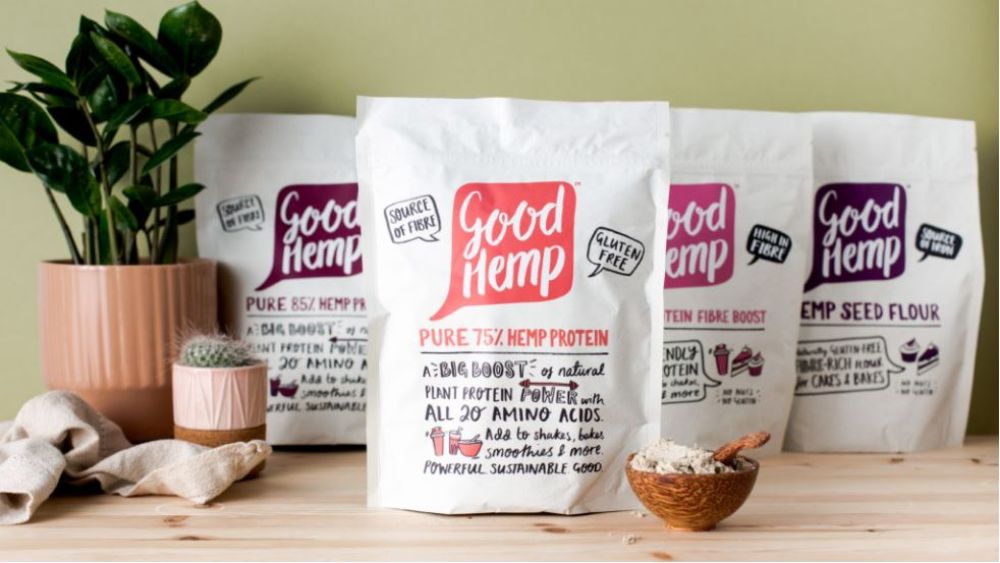
Eggs > Ripe Bananas
Want to get creative in the kitchen? There are some pretty clever ways to cook your favourite recipes using vegan alternatives – you won’t even notice the difference! Eggs are a key ingredient in many products, recipes and bakes due to their binding qualities, but since their production is responsible for animal welfare issues, we’ve got to think first before reaching for the mayo.
Ripe bananas are a fantastic egg substitute, adding moisture and sweetness to plant-based recipes such as cakes, brownies and pancakes. Plus, everybody who is anybody is guilty of having a few neglected brown bananas in their fruit bowl, right?
If you’re not nuts about ‘nanas, there are plenty of other vegan alternatives to eggs worth trying in your next Mary Berry-esque masterpiece!
Butter > Coconut Oil
Another bump in the road when it comes to cooking or baking is butter. Coconut oil is probably the most popular substitute for this, as it works in pretty much any recipe that requires butter. In some cases such as baking, however (it bakes at a 1:1 ratio), it may alter the taste slightly – often for the better! Other vegan alternatives to butter include vegan butter, dairy-free yoghurt, and even applesauce.
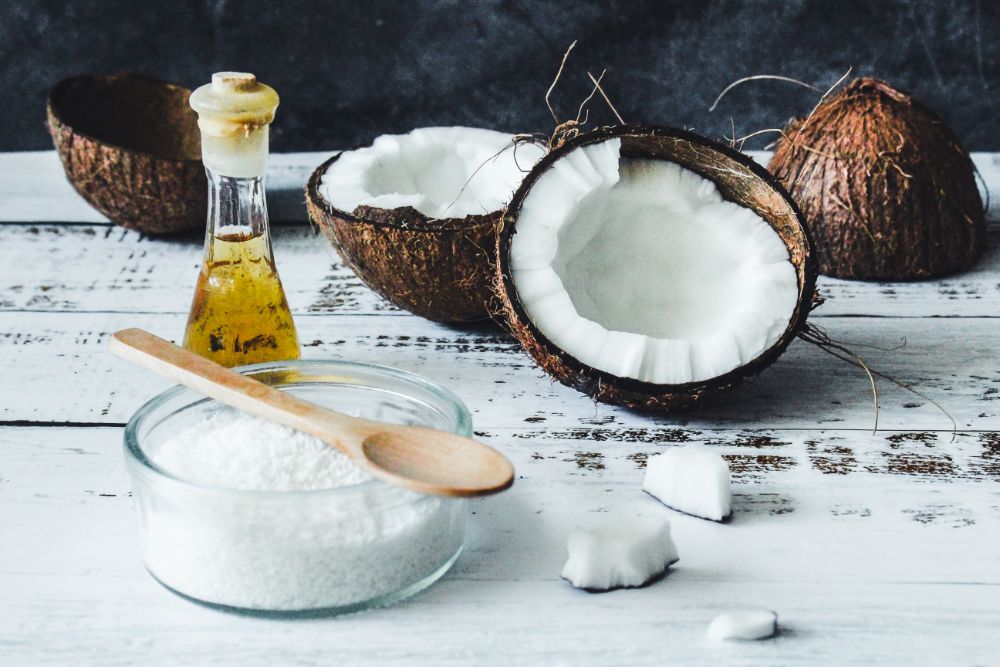
Milk > Dairy-Free Milk
Wondering what to pour on your cereal now you’ve gone plant-based? Good Hemp’s range of dairy-free milks are a vital source of omega-3, which does wonders for your brain, heart and skin health (plus the environment). From posh Barista Seed Milk to Oat & Hemp Milk, your froffy coffees need not be sacrificed!
Meat > Meat Replacers
Like it or not, meat is a pretty big deal to most and finding tasty alternatives can be tricky. Luckily for you, our partner Meatless Farm (who feature in Good Hemp’s Sustainable Food Delivery Guide) are the perfect food delivery service for any eco-conscious consumer. This sustainable local food brand can deliver delicious meat-free bundles straight to your doorstep, with plant-based mince, sausages and burgers, plus recipe inspo for those down for some DIY. It’s movements like this that help bring us one step closer to a sustainable planet.
Burger night, anyone?
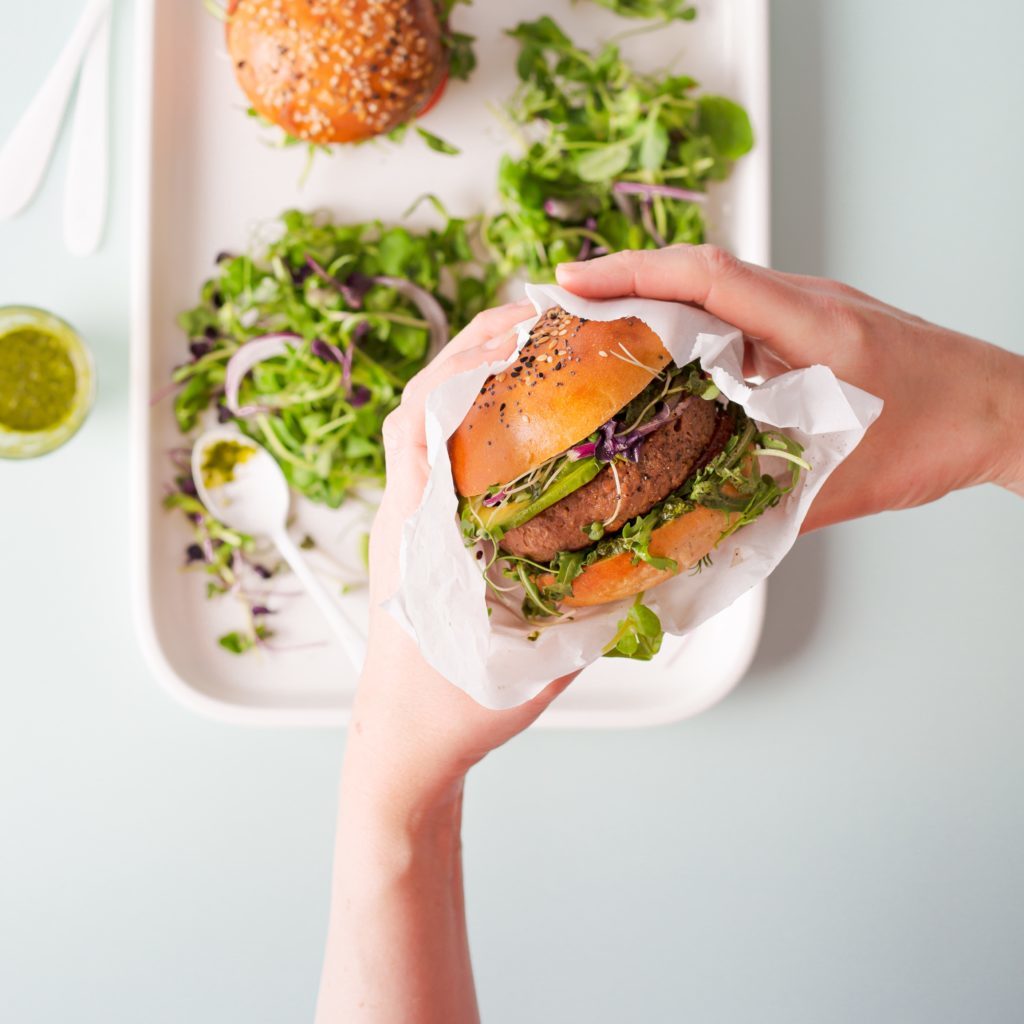
Cheese > Vegan Cheese
If you’re planning a wine and cheese night, you can’t miss the mouthwatering selection boxes from La Fauxmagerie (a company who’s puns are as good as their plant-based products). Crowned as the UK’s first dairy-free cheesemonger, this genius brand believes that no vegan should have to sacrifice a fanciful cheese and charcuterie board – and we’re totally here for it. Also featured in our sustainable food delivery guide, their products are the perfect alternative to dairy if you’re looking to make the big swap, and are equally delicious whether you want to melt it, sprinkle it or spread it!
Improving Air Quality With Sustainable Transport
An effective transport system is crucial for economic well-being and good quality of life, yet there is widespread concern about how the growth of transport is negatively affecting our planet. During the first lockdown of the global pandemic, daily CO2 emissions fell by 17% due to reduced road congestion and grounded planes. With transport contributing towards 23% of all CO2 emitted, it’s time we travelled smarter in a bid to reduce transport emissions and improve air quality.
Holiday Away > Holiday In The UK
Passing on a plane ride and planning a UK staycation instead will undoubtedly do wonders for the environment. Flying makes up a huge chunk of our carbon footprint, and while – granted – it’s not always as convenient and may eat into your annual leave, holidaying locally with transport via train, coach, or car, can seriously save on the whole CO2-pumping thing.
According to the UK’s department for Business, Energy and Industrial Strategy (BEIS), a single passenger travelling on a domestic flight in Britain can lead to climate impacts equivalent to 254g of CO2 for every kilometre, while an intercity train releases 41g CO2 for every passenger mile, and coaches only 28g. We’ll leave you to do the maths!
Commuting > Working From Home
While we’ve established that taking the train is better than flying, there are still countless commuters that rely on the roads to get to work every day – which when you add it up, has a pretty big impact on air pollution.
Environmental Journal claims that data analysis on the emissions released from commuting, gathered by the home energy-saving assistant Loop, revealed that those who have a 50-mile round trip Monday to Friday could save around 379kg of CO2 emissions annually, if they worked from home for just one day a week. You don’t have to tell us twice!
Or if that’s not possible, how about trying to make your commute more sustainable? Which brings us onto our next tip…
Driving > Cycling
If you’re wondering how to commute more sustainably (assuming you don’t work 100 miles from home, of course), why not swap driving to work for cycling? Ditch bumper-to-bumper traffic for soaring down cycle paths instead, whether you opt for a traditional bicycle or – if you’re feeling futuristic – go electric, and benefit from that little extra boost! Not only is it better for the planet, it’s a great way to keep fit too.
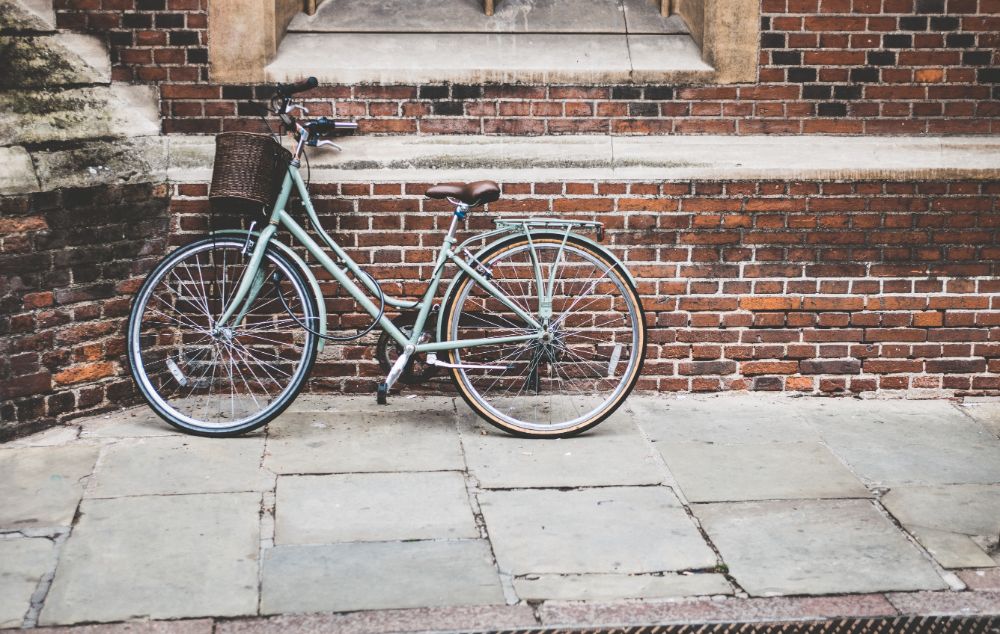
Shopping For Sustainable Clothing
Being eco-conscious goes further than stocking the fridge with meat-free sausages, though. When it comes to sustainable fashion, second-hand is the answer.
New Clothes > Second Hand Clothes
Forgo popular high-street stores (when they’re open, of course) for second-hand clothes shops instead; two of our favourites being Thrift+ and TRAID. Helping charities to serve the next generation of donors and shoppers, these eco-friendly stores allow you to shop for second-hand items from your favourite brands, as well as donate any unwanted belongings in need of a better home.
Swerving the urge to throw your ageing cotton jumper in the bin and donating it instead also benefits the environment, since fashion waste contributes towards greenhouse gases, water pollution and air pollution. It’s as simple as that!

Synthetic Fabrics > Sustainable Fabrics
It’s no wonder we’re such HUGE fans of hemp here, since this clever little plant can do so much more for the environment than you think. Hemp fabric (yes, you read that correctly) is a sustainable textile made of fibres of a very high-yielding crop in the cannabis sativa plant family, and the perfect solution if you want to swap synthetic fabric for a more sustainable choice. Since hemp is 100% natural, it’s known to be one of the most durable and versatile fibres (similar to bamboo). It’s benefits include that it’s:
- Environmentally friendly
- Moisture-absorbing
- Bacteria-preventing
- Blocking ultraviolet rays
- Easily recyclable
Looking for a way to save the planet without, well, walking around in the nude? Hemp, as always, is the answer.
If you want to get the new year off to a good start, let hemp and bamboo be your heroes! Due to their carbon-negative nature – which means that they absorb more carbon over the course of their lifetime than they take to produce – these two plants can save the world, one small change at the time. Check out Good Hemp’s lush nutritious hemp products and @BambuuBrush’s sustainable bamboo products to do your bit for the planet this year.

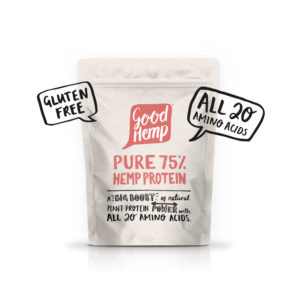 Pure 75% Hemp Protein
Pure 75% Hemp Protein 